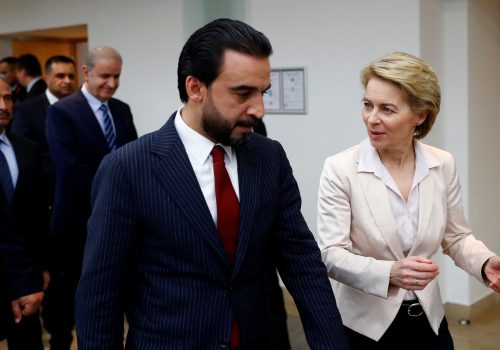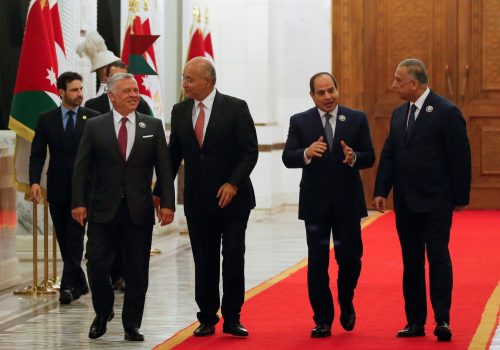Optimizing and aligning the US-Iraq relationship
The relationship between the United States and Iraq remains the Schrödinger’s cat of US foreign relations. Just as physicist Erwin Schrödinger posited that a cat housed in a box with something that could kill it is both dead and alive until the outcome is observed, the US-Iraq relationship is both friendly and adversarial depending not only on when it is observed, but who is observing it. In a 2022 Gallup Poll, for instance, 81 percent of Americans held an unfavorable view of Iraq, while a 2019 poll of Iraqis found that 53 percent thought the purpose of the 2003 US invasion was to plunder Iraqi wealth and 84 percent saw the US-led coalition as an occupying force. Meanwhile, as Prime Minister Mustafa al-Kadhimi seeks greater cooperation under the Strategic Framework Agreement (SFA) meant to govern ties between the two nations, Iraqi militias like Kata’ib Hizballah (KH), who receive funding from the Iraqi government as part of the Popular Mobilization Forces (PMF), attack US forces with relative impunity.
A new report, Optimizing and Aligning the US-Iraq Relationship, authored by Atlantic Council senior fellow Dr. C. Anthony Pfaff, considers US-Iraq relations’ need for an approach that relies less on directly confronting corrupt and malign actors and more on creating better alternatives so that individuals and groups do not choose to engage in corrupt and malign activities in the first place. Such an approach requires a sensitivity to opportunities on the part of US and Iraqi leaders to shape those choices. Developing that sensitivity requires a deeper understanding of actors and their interests as well as how those interests interact to create both obstacles and opportunities for political stability, economic growth, and regional security. Getting that deeper understanding requires an understanding of the context in which these choices are made, the actors who make them, and a framework for identifying and taking advantage of opportunities to shape those choices as they arise.
Related content

Through our Rafik Hariri Center for the Middle East and Scowcroft Middle East Security Initiative, the Atlantic Council works with allies and partners in Europe and the wider Middle East to protect US interests, build peace and security, and unlock the human potential of the region.


